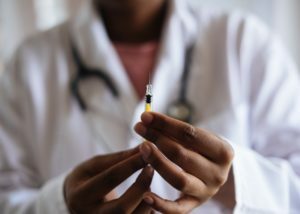There’s nothing quite like the excitement of trying to conceive. For many couples, getting pregnant is a joyful process that happens naturally and effortlessly. For others, it can be a little more difficult. If you’re trying to conceive, there are a few things you can do to increase your chances of success.
Consider taking supplements.
Supplements—especially fertility support supplements—are a simple yet effective way to improve your chances of conception. You may also consider taking a vitamin D supplement, omega-3 fatty acids, or antioxidants to promote healthy pregnancy. In addition, make sure that you are taking a prenatal vitamin that has enough folic acid. This is important for preventing birth defects.
Try to relax and stay positive.

It’s important to keep in mind that stress can have a negative impact on fertility, so try to keep your stress levels under control. Don’t be too hard on yourself – just take it one day at a time and focus on the things that you can control. And, most importantly, keep a positive outlook on things and don’t get stressed out. As difficult as it may seem, you should try to relax as much as possible.
Make healthy lifestyle choices.
There are many things a person can do to increase their chances of becoming pregnant. However, making healthy lifestyle choices is one of the most important things you can do. Both you and your partner should eat a healthy diet, including plenty of fruits, vegetables, and whole graims. Getting enough exercise is also important. aim for at least 30 minutes of moderate exercise most days of the week. Managing stress is also key when trying to conceive. Finally, if you have any bad habits like smoking or drinking, it is important to quit them if you want to increase your chances of getting pregnant. Smoking and drinking can both harm your fertility.
Try natural methods.
One of the most important ways to increase your chances of conception is to be aware of your body and its changes. Fertility charting and basal body temperature charting can help you do just that. Fertility charting is a way of tracking your menstrual cycle by recording the dates of your period, your cervical mucus, and your basal body temperature. Your basal body temperature will rise slightly after you ovulate, so tracking your basal body temperature can help you to determine your ovulation date, which is the time of the month when you are most likely to get pregnant.
Plan around ovulation.

There is no one right answer for how often to have sex when trying to conceive—some couples do best with daily sex, while others find that every other day is more effective. However, it is important to have sex regularly around your ovulation date in order to maximize your chances of conception. Even if you’re not sure when you ovulate, you can still increase your chances of getting pregnant by having sex every day or every other day. This will ensure that you’re providing your body with plenty of opportunities to conceive.
See a fertility specialist.
There are a number of reasons why you may not be able to conceive, and a specialist can help you identify the cause. Some common issues that can affect fertility include endometriosis, polycystic ovarian syndrome (PCOS), and poor sperm quality. If you have been trying to conceive for a while and have not had any success, it may be a good idea to see a fertility specialist. A specialist can help you identify any potential issues and recommend treatment options. Treatment options may include medications, surgery, or in-vitro fertilization (IVF).
If you are struggling with infertility, don’t give up. There are many treatment options available, and with the help of a specialist, you can overcome your infertility and conceive a baby.




